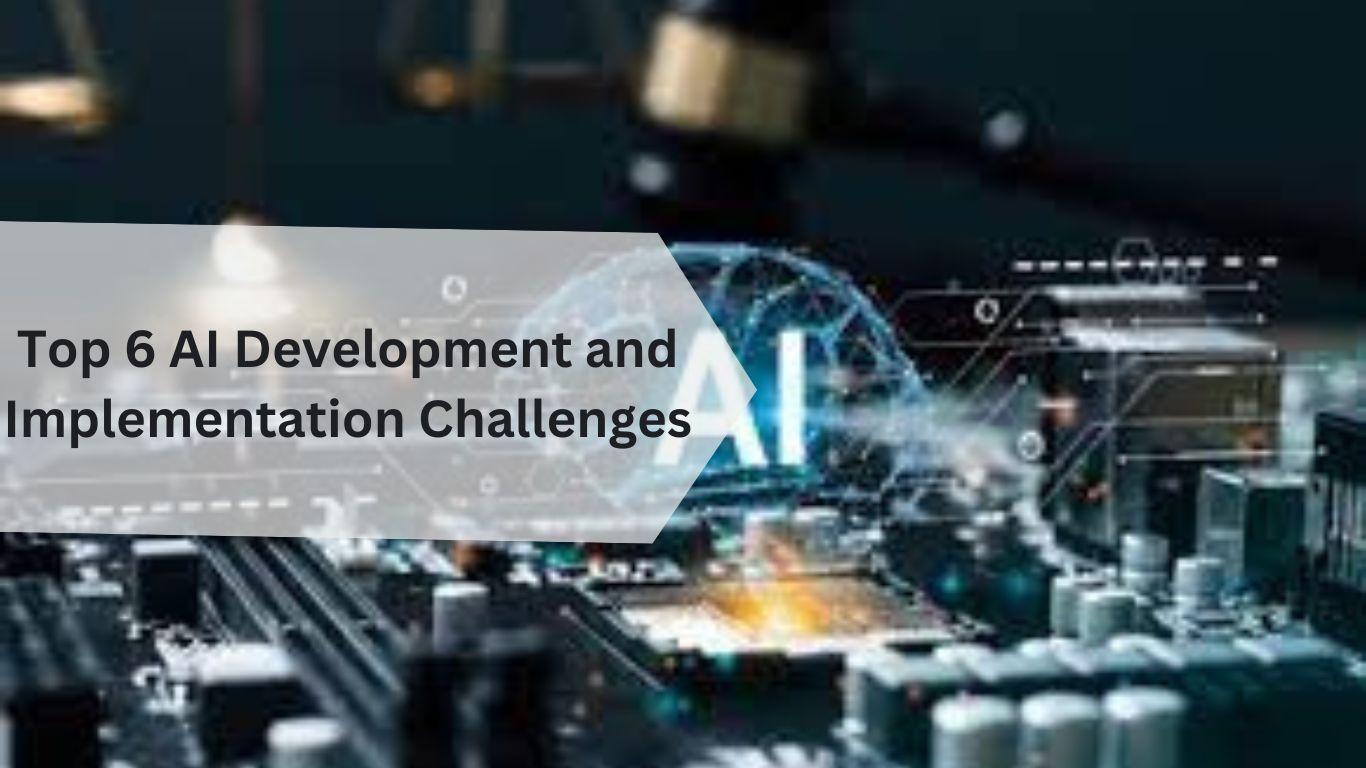Artificial intelligence (AI) has become a pivotal force in reshaping industries worldwide, offering promising solutions to enhance operations and customer experiences. However, behind the scenes, the development and implementation of AI solutions come with their fair share of hurdles. In this article, we’ll explore some of the key challenges encountered in AI development and implementation.
Unraveling AI Development Services
Before diving into the challenges, it’s essential to understand what AI development services entail. AI development services encompass a range of activities, including designing, customizing, and deploying AI solutions tailored to specific business needs. These services are typically provided by specialized software development companies equipped with expertise in machine learning, natural language processing, computer vision, and other AI technologies.
Challenges in AI Development and Implementation
1. Data Quality and Availability
High-quality data is the lifeblood of AI algorithms. However, obtaining clean, labeled data sets can be a significant challenge, particularly in industries with stringent data privacy regulations. Without access to quality data, AI models may struggle to learn effectively and make accurate predictions.
2. Algorithm Bias and Fairness
Algorithm bias presents a formidable ethical challenge in AI development. Biased algorithms can perpetuate discrimination and exacerbate existing inequalities, especially in domains like hiring and lending. Ensuring algorithmic fairness requires careful attention to the data used for training and ongoing monitoring to detect and address biases.
3. Interpretability and Explainability
The opaque nature of many AI models poses a barrier to their adoption. Stakeholders, including regulators and customers, often demand explanations for AI-driven decisions. Achieving interpretability and explainability without sacrificing model performance remains a significant challenge for AI developers.
4. Scalability and Performance
Scalability and performance are critical considerations in AI implementation, particularly for applications with high computational demands. As datasets grow larger and computational resources become more complex, optimizing AI models for efficiency and scalability becomes increasingly challenging.
5. Regulatory Compliance
Navigating the regulatory landscape is a complex task for businesses leveraging AI technologies. Industries such as healthcare and finance are subject to stringent regulations governing data privacy, security, and ethical AI usage. Adhering to these regulations while innovating with AI requires a comprehensive understanding of legal requirements and best practices.
6. Talent Shortage
The demand for skilled AI professionals far exceeds the current supply, leading to a talent shortage in the field. Recruiting and retaining top AI talent can be particularly challenging for small and medium-sized enterprises (SMEs) with limited resources.
Conclusion
Despite the challenges, the potential benefits of AI are undeniable. By understanding and addressing the hurdles associated with AI development and implementation, businesses can unlock new opportunities for innovation and growth. Leveraging AI development services offered by experienced software development company can provide invaluable support in navigating the complexities of AI, enabling organizations to harness the full potential of artificial intelligence.



